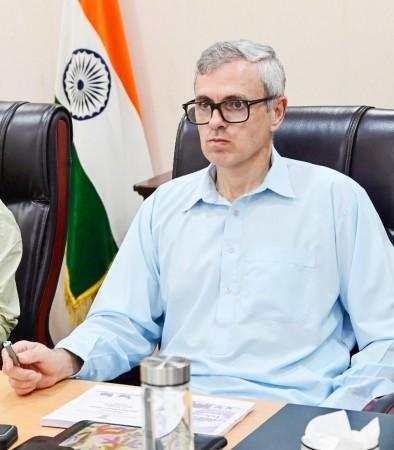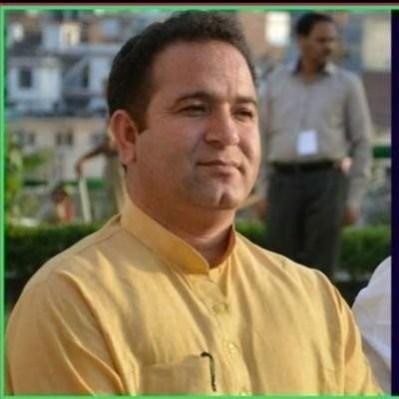
A major political controversy broke out after Jammu and Kashmir's Chief Minister Omar Abdullah equated the July 13, 1931, incident in Srinagar with the Jallianwala Bagh massacre of 1919.
The opposition BJP strongly criticized Omar for what it called an "insult" to the martyrs of Jallianwala Bagh by comparing them to what the party described as "rioters" of the 1931 Srinagar incident.
"It is deeply disappointing and utterly irresponsible that Omar Abdullah has chosen to equate the events of July 13, 1931, with the horrific Jallianwala Bagh massacre. This flawed and misleading comparison is not only historically inaccurate but is a grave insult to the martyrs of India's freedom struggle who laid down their lives for the cause of independence," said Sunil Sharma, Leader of the Opposition in the J&K Legislative Assembly.
He said the Jallianwala Bagh massacre of 1919 remains one of the darkest and bloodiest chapters of British colonial rule in India.
"Hundreds of innocent and unarmed Indians—including men, women, and children—were gunned down in cold blood by British troops under General Dyer simply for gathering peacefully to protest unjust laws. These victims were not part of any mob," Sharma said. "They were peaceful citizens demanding freedom and dignity from foreign rule. As Indians, remembering them is our collective moral and national duty."

In sharp contrast, Sharma added, the events of July 13, 1931, in Srinagar were not a peaceful protest but a violent communal uprising incited by political conspiracies against the last Dogra ruler of Jammu and Kashmir, Maharaja Hari Singh.
"The unrest began following inflammatory speeches by Abdul Qadeer, a domestic servant of a British officer, who sought to provoke religious sentiments. After his arrest, a frenzied crowd gathered outside the Srinagar Central Jail, defied repeated warnings, and attempted to storm the premises. The police opened fire, resulting in the deaths of 13 people," he said.
Sharma alleged that the violence did not end there. "The aftermath saw widespread communal targeting. Hindu and Sikh households, businesses, temples, and gurdwaras in Srinagar and even in regions like Rajouri, Mirpur, and Muzaffarabad were attacked, looted, and destroyed. This cannot and should not be glorified as a freedom struggle. It was a dark chapter of communal violence, not a nationalist movement."
He emphasized, "Let us be clear: the victims of Jallianwala Bagh were national heroes who stood up against foreign tyranny. The violent rioters of 1931 were used as pawns by vested interests seeking to destabilize communal harmony and undermine native Dogra rule. The two events are fundamentally different in intent, character, and consequence."
13th July massacre is our Jallianwala Bagh. The people who laid down their lives did so against the British. Kashmir was being ruled under the British Paramountcy. What a shame that true heroes who fought against British rule in all its forms are today projected as villains only…
— Omar Abdullah (@OmarAbdullah) July 13, 2025
Omar Abdullah's Statement
Earlier, Omar Abdullah equated the July 13, 1931 incident with the Jallianwala Bagh massacre in a post on social media.
"13th July massacre is our Jallianwala Bagh. The people who laid down their lives did so against the British. Kashmir was being ruled under British Paramountcy. What a shame that true heroes who fought against British rule in all its forms are today projected as villains only because they were Muslims. We may be denied the opportunity to visit their graves today, but we will not forget their sacrifices," he wrote.

















